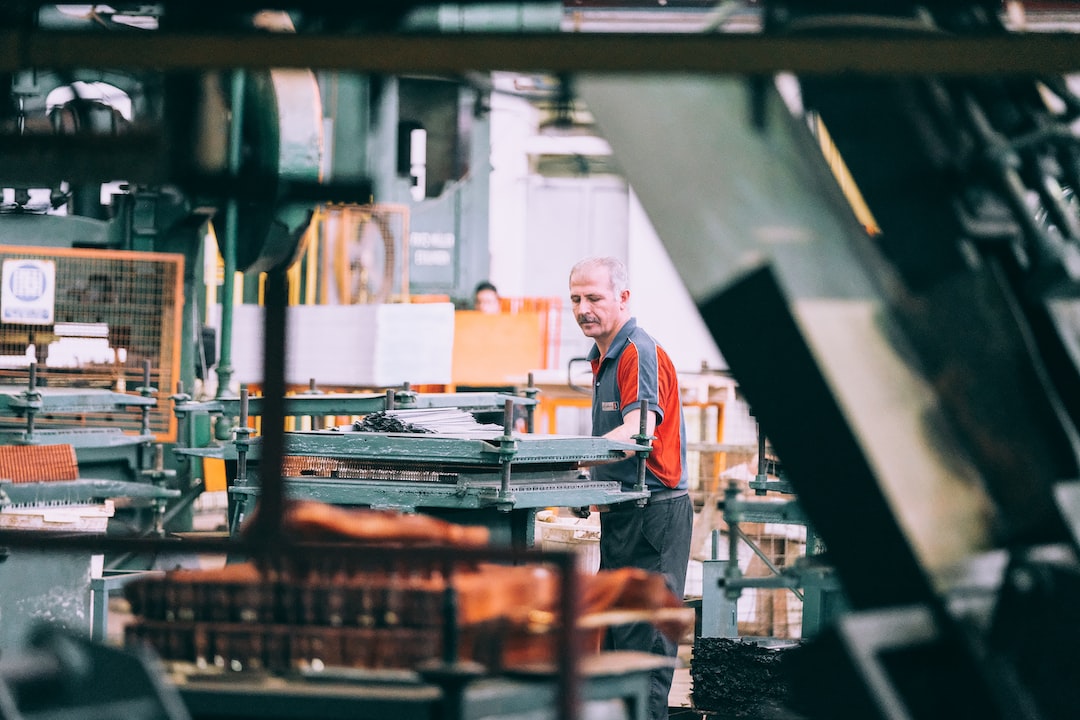Artificial intelligence (AI) has revolutionized numerous industries, and its impact in manufacturing is no exception. With its ability to analyze vast amounts of data, learn from patterns, and make accurate predictions, AI has transformed how manufacturing processes are carried out. From improving efficiency and quality control to optimizing supply chain management, AI is reshaping the future of manufacturing.
One of the key areas where AI is making a significant impact is in predictive maintenance. Traditional maintenance practices are often time-based or usage-based, resulting in either unnecessary maintenance or unexpected breakdowns. With AI, however, manufacturers can employ techniques like machine learning to predict when a machine is likely to fail, allowing them to perform maintenance tasks just in time and minimize downtime. This not only optimizes machinery performance but also helps to reduce costs associated with maintenance.
Another area where AI is transforming manufacturing is in quality control. AI-powered algorithms can analyze large amounts of data collected from sensors and cameras to detect defects or anomalies in real-time. This allows manufacturers to identify quality issues early in the production process and take corrective actions, minimizing waste and improving overall product quality. The ability of AI to continuously learn and adapt makes it an ideal tool for improving the accuracy and efficiency of quality control processes.
Supply chain management is yet another area where AI is making a significant impact. AI-powered algorithms can analyze supply chain data, including inventory levels, demand forecasts, and production schedules, to optimize the flow of materials and reduce lead times. This improves overall operational efficiency, reduces costs, and minimizes disruptions in the supply chain. AI can also enable manufacturers to make data-driven decisions in real-time, allowing them to respond quickly and effectively to changes in customer demand or market conditions.
Additionally, AI is helping manufacturers to develop smarter and more innovative products. By leveraging AI-driven design tools, manufacturers can optimize product development processes, resulting in products that are not only more efficient but also meet customer needs more effectively. AI can also enable manufacturers to analyze market trends and customer feedback, providing valuable insights for product improvement and innovation.
The impact of AI in manufacturing also extends to the workforce. Although some fear that AI will replace human workers, the reality is that it is more likely to augment their skills and capabilities. By automating repetitive and mundane tasks, AI frees up valuable time for workers to focus on more complex and value-added activities. This leads to increased productivity and job satisfaction among the workforce. Furthermore, AI can provide workers with real-time insights and guidance, enabling them to make more informed decisions and perform tasks more effectively.
While the benefits of AI in manufacturing are undeniable, it is important to acknowledge and address potential challenges and concerns. One such concern is the need for skilled labor capable of developing and implementing AI technologies. To fully harness the potential of AI, manufacturers need to invest in training and upskilling their workforce, ensuring they have the necessary expertise to leverage these technologies effectively.
Additionally, there are ethical considerations surrounding the use of AI in manufacturing. As AI becomes more autonomous and capable of making decisions on its own, manufacturers need to ensure that these decisions align with ethical principles, particularly when it comes to issues like safety and privacy. Transparent and accountable AI systems should be developed, and appropriate regulations and standards should be put in place to govern their use.
In conclusion, the impact of artificial intelligence in manufacturing is significant and transformative. From predictive maintenance and quality control to supply chain management and product innovation, AI is revolutionizing how manufacturing processes are carried out. While it presents challenges and concerns, with proper investment in skills development and ethical considerations, AI has the potential to revolutionize the manufacturing industry, improving efficiency, enhancing product quality, and empowering the workforce.

